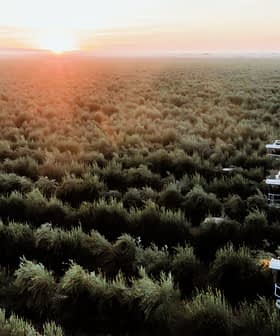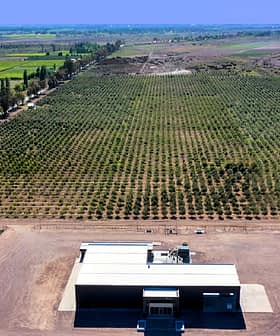
The current pricing crisis in the olive oil sector, the devaluation of the euro, poor climatic conditions and problems in obtaining sufficient agrarian labor have all contributed to the growing difficulties in the Argentinean olive oil industry which is not expected to do well this season. These problems are compounded with other systemic issues like inflation and low levels of internal consumption. Argentineans consume only .15 liters of olive oil per person annually while world leader Greece consumes 24 liters per person and Spain and Italy each consume around 14 liters.
Mario Bustos Carra, general manager of the Cuyo Chamber of Exterior Commerce explains that this year will be, “extremely complicated in the first place because of foreign competition and internal factors like inflation which will generate serious difficulties for producers and the industry as a whole due to recent falls in profits and cost-efficiency”. Similarly, he feels that “there is not much optimism” even though Europe has initiated quick measures to support the sector abroad.
In Argentina, the price of olive oil has dropped some 30% in spite of Argentinean olive growers positioning themselves as leader of the region due to the quality of their products.
Miguel Zuccardi, CEO of the Argentinean wine and olive giant Familia Zuccardi, claims that, “this year the olive harvest has not been good due to a number of climatic factors”. Speaking for the Argentinean olive oil sector Zuccardi cited low international prices as a key obstacle. “We face a rather discouraging year”, he said. “From a business perspective we will be concentrating on quality assurance as a long term plan as international prices will not recover until April of 2011”.
These poor expectations seem to have divided the Argentinean olive oil sector into various camps. Some think that there are more significant issues to consider besides certifying the quality of the product available to consumers. While half of the sector has fought for measures to ensure the authenticity of the olive oil on the market, others have done the exact opposite and have lobbied heavily to drop these guidelines and modify the existing Argentinean Food Code.








